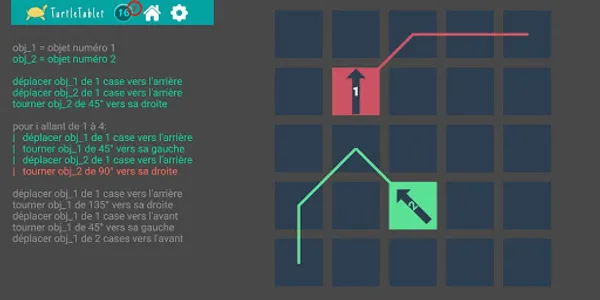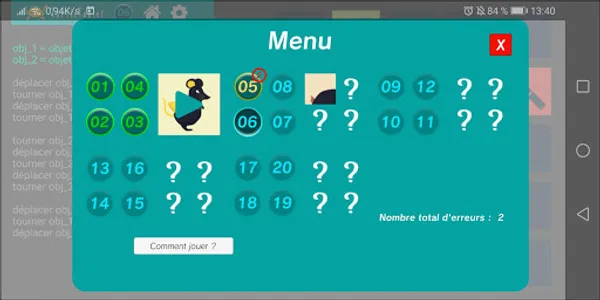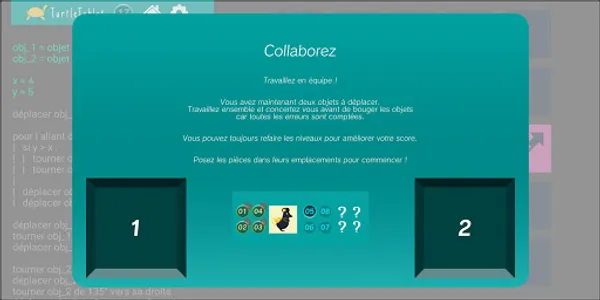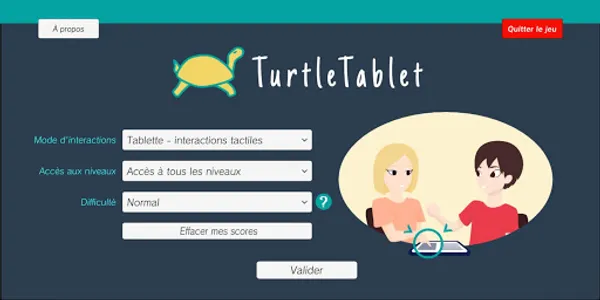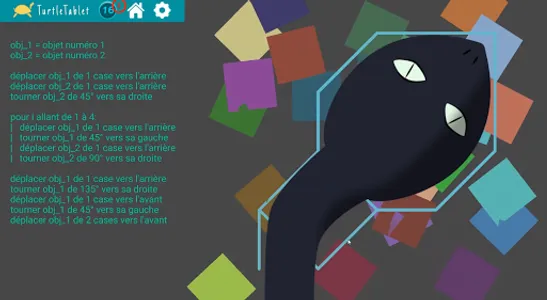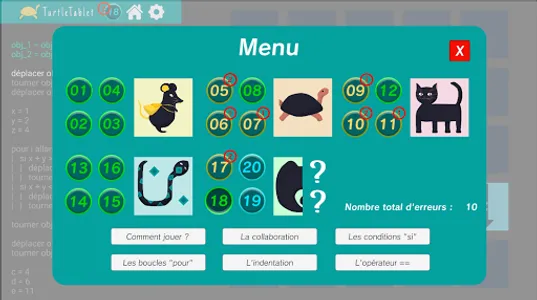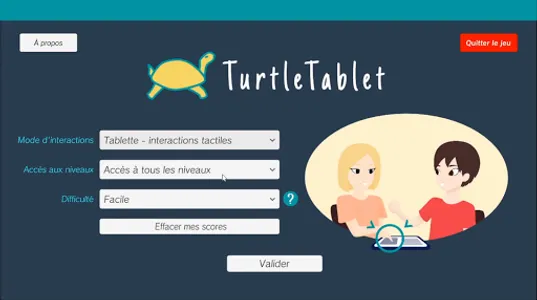TurtleTablet is a collaborative game to learn the basics of computer programming.
TurtleTablet is initially intended for middle school students, but it can also be used for any type of audience wanting to learn programming.
TurtleTablet gradually introduces the following concepts:
- Coding convention (how to write the code with a specific vocabulary and grammar)
-Change of geospatial repository
-Angles of rotation
- Variables
-Conditions
- Loops
- Nesting of instructions
To promote real collaboration between players, the game can be played with two physical objects (tangible pieces) recognized on the screen of the tablet. This innovative mode of interaction, resulting from research, has a beneficial effect on the motivation, collaboration and learning of students. These items can be made by the students themselves, with a 3D printer and conductive paint, or with cardboard and aluminum by following the building guides.
If you want to use this tool with your class, we simply ask you to inform us by sending an email to iza.marfisi@univ-lemans.fr. We can send you an educational booklet, co-written with pilot teachers who have tested the application, to help you use the game to meet the educational goals set by the curriculum. In return, we hope you will take the time to answer a short feedback questionnaire, which will be very useful for our research. Any suggestions for improvement are also welcome.
We thank our partner Volumique for providing us with the API that allows the recognition of tangible objects on tablets.
TurtleTablet is the result of a research project led by the IT Laboratory of the University of Le Mans in partnership with Volumique.
Project members:
- Iza MARFISI, Associate Professor, LIUM
- Sébastien GEORGE, Professor of Universities, LIUM
- Marc LECONTE, Research engineer, LIUM
- Trainees: Evan MOTTAIS, Baptiste JAMET, Adrien DUPORGE, Quentin HERMANN, Rozenn DAGORN and Clément BOUSSARD.
TurtleTablet is initially intended for middle school students, but it can also be used for any type of audience wanting to learn programming.
TurtleTablet gradually introduces the following concepts:
- Coding convention (how to write the code with a specific vocabulary and grammar)
-Change of geospatial repository
-Angles of rotation
- Variables
-Conditions
- Loops
- Nesting of instructions
To promote real collaboration between players, the game can be played with two physical objects (tangible pieces) recognized on the screen of the tablet. This innovative mode of interaction, resulting from research, has a beneficial effect on the motivation, collaboration and learning of students. These items can be made by the students themselves, with a 3D printer and conductive paint, or with cardboard and aluminum by following the building guides.
If you want to use this tool with your class, we simply ask you to inform us by sending an email to iza.marfisi@univ-lemans.fr. We can send you an educational booklet, co-written with pilot teachers who have tested the application, to help you use the game to meet the educational goals set by the curriculum. In return, we hope you will take the time to answer a short feedback questionnaire, which will be very useful for our research. Any suggestions for improvement are also welcome.
We thank our partner Volumique for providing us with the API that allows the recognition of tangible objects on tablets.
TurtleTablet is the result of a research project led by the IT Laboratory of the University of Le Mans in partnership with Volumique.
Project members:
- Iza MARFISI, Associate Professor, LIUM
- Sébastien GEORGE, Professor of Universities, LIUM
- Marc LECONTE, Research engineer, LIUM
- Trainees: Evan MOTTAIS, Baptiste JAMET, Adrien DUPORGE, Quentin HERMANN, Rozenn DAGORN and Clément BOUSSARD.
Show More
